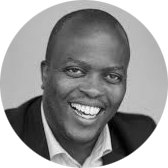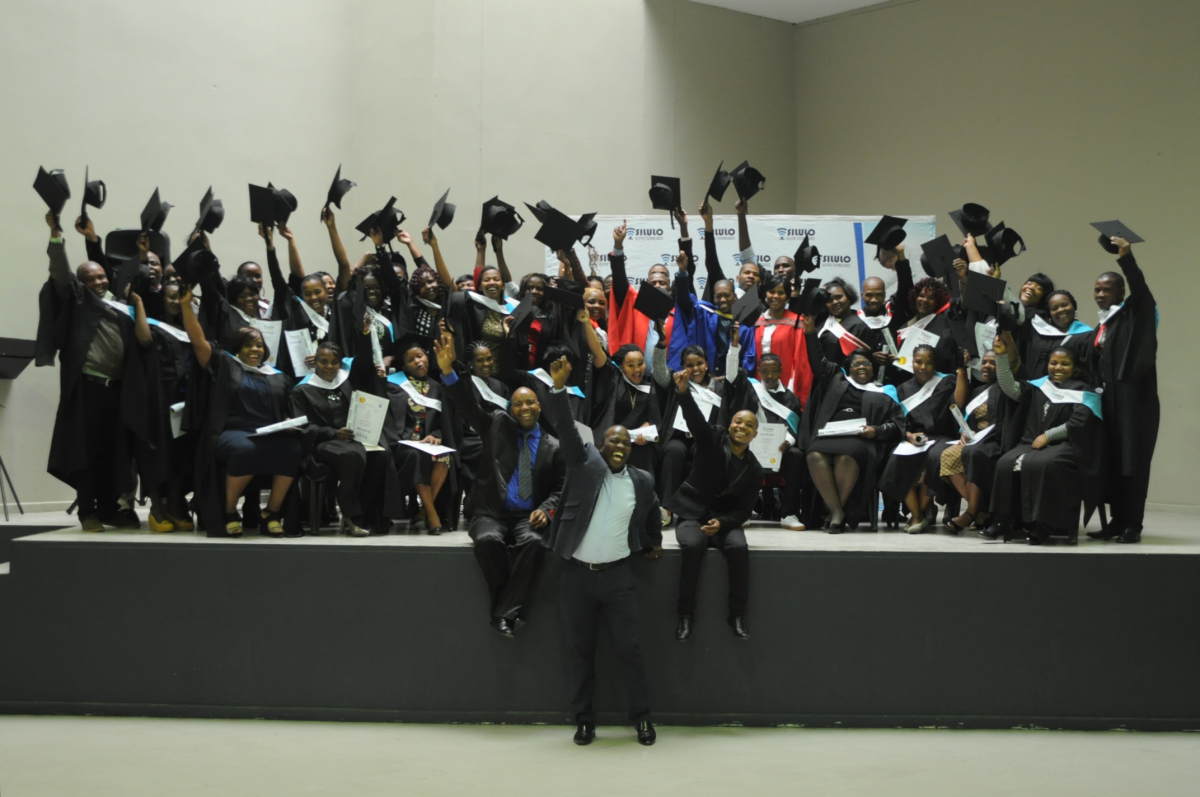 Luvuyo Rani is the co-founder and director of South African company Silulo Ulutho Technologies. What started out as a computer repair service and an Internet café twelve years ago now provides computer training to 4000 people a year in the country’s townships. We’ve talked with Luvuyo Rani about education, empowerment and the potential of technology.
Luvuyo Rani is the co-founder and director of South African company Silulo Ulutho Technologies. What started out as a computer repair service and an Internet café twelve years ago now provides computer training to 4000 people a year in the country’s townships. We’ve talked with Luvuyo Rani about education, empowerment and the potential of technology.
Can you tell us a little bit about yourself and your background?
I am 42 years old, I was born in South Africa, in the Eastern Cape region. I used to work as a teacher. Then I resigned; I started selling refurbished computers, I opened an Internet café, and then a training center. Today I have 46 one-stop IT centers in the country, that double as Internet cafés and training centers. We also have 20 franchises that are run by former staff members and entrepreneurs. Our goal is to have an impact on education, empowerment, technology and entrepreneurship.
What prompted you to expand your activities to training?
When I was a teacher, I saw that many of the children couldn’t use computers, and I knew how important education was. Even today, there is no connectivity and no infrastructure in the townships and the rural areas in South Africa. Young people don’t have access to computer skills. So I decided to bring the facilities where they are needed, in the communities. People told me I was mad: why would I bring them where there’s crime and robberies? And I said: this is where the need is. I understand the market and the need, I took a road that’s not well-traveled by many people, and I was able to offer this service. Today, people who are coming into the townships want to talk with me!

What do you teach in your centers?
People have to connect to computers to be able to find a job, to fund their business, to do their work (a lot of students come to us), to get the skills they need to fight unemployment. The people who come to us have never touched a computer before, it’s their first time employment, so it is really an entry level. But we are expanding now, we are adding visual marketing, office administration, graphic design, etc. So we grow with them. We start with the basics, and then add more courses. We have 4000 students a year and, on average, we see more than 200 people a day, who come to the centers for copy services, Internet access, business services, help with website design or business plans, etc.
What is the general context in South Africa right now?
We started out in Kayelitsha, the second biggest township in South Africa, where 1.5 million people live. 60% of them are unemployed, and it’s a lot of young people. 80% of the students that come to us are women. At national level, the unemployment rate is 28% unemployed. We are in a recession period right now, and people need new skills to find jobs. We are in a situation where we need more social infrastructures to address these social problems.
Do you think that social entreprises have the power to do what the government cannot or does not want to do?
Yes. Social businesses can do what the government has failed to do because of its corruption. We can provide access, training, connectivity. We can occupy the space that is not occupied by the government.
Technology is going to change the way we do things. And I think that it will progress in the right way, because we will enable people to gain new opportunities and empower as many people as possible.
How do you see the future of your company and of your country?
We are in a very interesting time as a country, as a continent, and as a world. Technology is going to change the way we do things. And I think that it will progress in the right way, because we will enable people to gain new opportunities and empower as many people as possible. South Africa is a better country, based on infrastructures and systems. There will come a new government, and I am hoping that then people will come back and invest here. And from that, we will see students receiving a better education, maybe even learning to code before they graduate. As for us, I see us becoming bigger centers in the country and the townships, where people will come from all walks of life. There are definitely exciting opportunities coming in South Africa.
Meet Luvuyo Rani during the 11th edition of the World Forum for a Responsible Economy
More than a 100 experts from around the world will take part in the WFRE from 17 to 19 October to discuss the technological, societal and economic upheavals of our time and present their reflections and good practices.